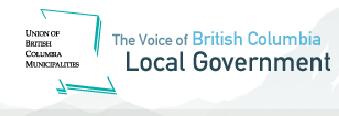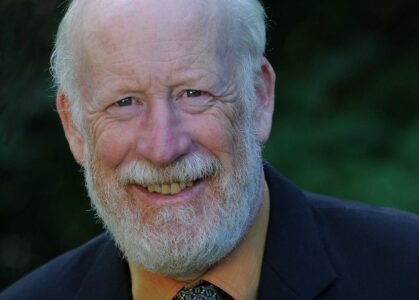UBCM recap: Rossland feels positive about new positive approach
Team Rossland recently returned from the annual Union of British Columbia Municipalities (UBCM) convention in Whistler and by all accounts it was a positive trip with some small if not significant victories.
Held September 27th through October 1st at the Whistler Conference Centre, the annual convention is a time for municipalities around BC to get together, discuss the issues, vote on resolutions to send to the province, participate in workshops and perhaps more importantly get some face with key ministers and the premier himself to directly pass on their issues and ask questions directly to the provincial government.
Team Rossland, made up of Mayor Greg Granstrom and Councilors Laurie Charlton, Jill Spearn, Kathy Wallace and Kathy Moore, took the issue of maintaining our schools to the conference.
“I know one of the main things we wanted to accomplish was to sit down in front of the Minister of Education,” explained Granstrom, “Our goal going in was to present a very positive response to the Ministry’s Neighbourhoods of Learning process. The provincial government gave us a $10,000 grant for it and the city put in $10,000 and we have a very dedicated group of volunteers in this community working on it. They have been working on the schools issue for at least twenty years that I know of, and we now see an organization or structure put in place to try and move the whole NOL concept forward and become a positive model for other communities.”
As well as sitting in on workshops on NOL, Rossland also got their face time with Mrs. Macdiarmid, minister of education. While concrete answers weren’t forthcoming to their questions, the goal of getting across a positive message that Rossland is working hard within the NOL framework to keep K-12 education in our community was achieved.
“So we sat in front of Ms Macdiarmid and asked her questions,” recalled Granstrom. “One of the big questions we asked was about $1.5 million subsidy that SD20 currently gets above and beyond the funding formula. The specific question we asked her is, ‘how long is that going to continue?’ And she said was going to end soon. How soon? She couldn’t answer that.”
Not knowing how long a major piece of the board’s funding will last leaves the city, the schools , the school board and so on in something of a holding pattern.
“So we have all of these scenarios on the table now and we have this fund that is continuing and all we know is that it’s probably going to end soon,” continued Granstrom. “It makes it impossible for the trustees, and the municipalities to plan any further than the ‘what if’ stage. On the positive side, we have this process in place that has a lot of very good ideas on how we can keep RSS viable and that message was sent to the Minister, and I know she smiled when we told her we were working hard on it. I think that was positive development.”
That sentiment of moving above and beyond complaining and fighting with other districts, accepting the situation and working towards a positive solution was a major theme in Rossland’s outward message at the conference.
“We’re not crying and pointing fingers at anyone,” added Granstrom. “At the least no one can say that we’re not trying and fighting for our schools. Fighting is not the right word really, we’re not doing any of this ‘Trail said this; someone else said that’ anymore. We’re pushing our own cause and pushing it in a very positive way.”
Outside of the school issues, another small win for Rossland and all communities along the Route 3 highway came in an unexpected and unprecedented move by the premier.
Rossland, along with the other communities from Hope to Crowsnest Pass, each have a representative (their respective mayors) on a recently-revitalized Highway 3 committee.
Last year that group met at the UBCM and took two specific issues they all agreed upon directly to their meeting with the premier. Specifically, they were looking at adding a passing lane in two sections, one in the East Kootenay, the other in the Hope-Princeton pass. The premier ultimately approved both of those projects so the group was back with a unified front on two more issues at this year’s convention.
“Last year we met the premier and had some success so this year we took three issues to the meeting and the premier asked us if we were all unanimous on it and he just said, ‘okay done!’. We were all shocked. People who have been to a million of these things were even shocked! I’ve sat with ministers and premiers many times and this is the first time I’ve ever seen the premier step in and just say, ‘done, done, and done’. Everyone there said they hadn’t seen that kind of response from a premier as long as they can remember,” noted Granstrom.
The three items requested were work on the hairpin corner below Copper Mountain as you head west out of Princeton, another passing lane section in the East Kootenay as well as a study to determine how much economics are driven in this region by Highway 3.
“The study we expect will show what we know, that Highway 3 is very important to this region. This report will help us generate the reasons to keep fixing and upgrading the road,” added Granstrom.
While that victory doesn’t directly benefit Rossland, the committee’s opinion as a whole is that fixing up any stretch of the highway makes it easier to get to other communities. In that sense Granstrom was pleased with the outcome and as stated by all attending councilors at this past Monday’s regular council ,the general feeling was a positive result coming out of the meetings for Rossland.


























